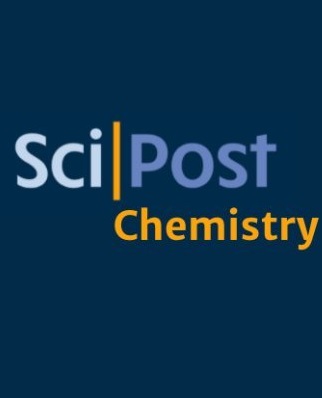Analytic thermodynamic properties of the Lieb-Liniger gas
IF 5.4
2区 物理与天体物理
Q1 PHYSICS, MULTIDISCIPLINARY
引用次数: 0
Abstract
We present a comprehensive review on the state-of-the-art of the approximate analytic approaches describing the finite-temperature thermodynamic quantities of the Lieb-Liniger model of the one-dimensional (1D) Bose gas with contact repulsive interactions. This paradigmatic model of quantum many-body-theory plays an important role in many areas of physics-thanks to its integrability and possible experimental realization using, e.g., ensembles of ultracold bosonic atoms confined to quasi-1D geometries. The thermodynamics of the uniform Lieb-Liniger gas can be obtained numerically using the exact thermal Bethe ansatz (TBA) method, first derived in 1969 by Yang and Yang. However, the TBA numerical calculations do not allow for the in-depth understanding of the underlying physical mechanisms that govern the thermodynamic behavior of the Lieb-Liniger gas at finite temperature. Our work is then motivated by the insights that emerge naturally from the transparency of closed-form analytic results, which are derived here in six different regimes of the gas and which exhibit an excellent agreement with the TBA numerics. Our findings can be further adopted for characterising the equilibrium properties of inhomogeneous (e.g., harmonically trapped) 1D Bose gases within the local density approximation and for the development of improved hydrodynamic theories, allowing for the calculation of breathing mode frequencies which depend on the underlying thermodynamic equation of state. Our analytic approaches can be applied to other systems including impurities in a quantum bath, liquid helium-4, and ultracold Bose gas mixtures.列布-里尼格气体的热力学性质分析
我们全面评述了描述具有接触斥力相互作用的一维(1D)玻色气体利布-莱尼格模型有限温度热力学量的近似解析方法的最新进展。这个量子多体理论的典范模型在物理学的许多领域都发挥着重要作用--这要归功于它的可积分性,以及利用限制在准一维几何结构中的超冷玻色原子集合体进行实验实现的可能性。均匀列布-里尼格气体的热力学可以通过精确的热贝特方差(TBA)方法进行数值计算。然而,TBA 数值计算并不能让我们深入理解支配有限温度下李布-李涅格气体热力学行为的基本物理机制。因此,我们的工作动力来自于闭式解析结果的透明性所自然产生的洞察力,这些结果是在气体的六种不同状态下得出的,与 TBA 数值计算结果具有极好的一致性。我们的研究结果可进一步用于在局部密度近似条件下描述非均质(如谐波俘获)一维玻色气体的平衡特性,并用于发展改进的流体力学理论,从而可以计算依赖于基本热力学状态方程的呼吸模式频率。我们的分析方法可应用于其他系统,包括量子浴中的杂质、液氦-4 和超冷玻色气体混合物。
本文章由计算机程序翻译,如有差异,请以英文原文为准。
求助全文
约1分钟内获得全文
求助全文
来源期刊

SciPost Physics
Physics and Astronomy-Physics and Astronomy (all)
CiteScore
8.20
自引率
12.70%
发文量
315
审稿时长
10 weeks
期刊介绍:
SciPost Physics publishes breakthrough research articles in the whole field of Physics, covering Experimental, Theoretical and Computational approaches. Specialties covered by this Journal: - Atomic, Molecular and Optical Physics - Experiment - Atomic, Molecular and Optical Physics - Theory - Biophysics - Condensed Matter Physics - Experiment - Condensed Matter Physics - Theory - Condensed Matter Physics - Computational - Fluid Dynamics - Gravitation, Cosmology and Astroparticle Physics - High-Energy Physics - Experiment - High-Energy Physics - Theory - High-Energy Physics - Phenomenology - Mathematical Physics - Nuclear Physics - Experiment - Nuclear Physics - Theory - Quantum Physics - Statistical and Soft Matter Physics.
 求助内容:
求助内容: 应助结果提醒方式:
应助结果提醒方式:


